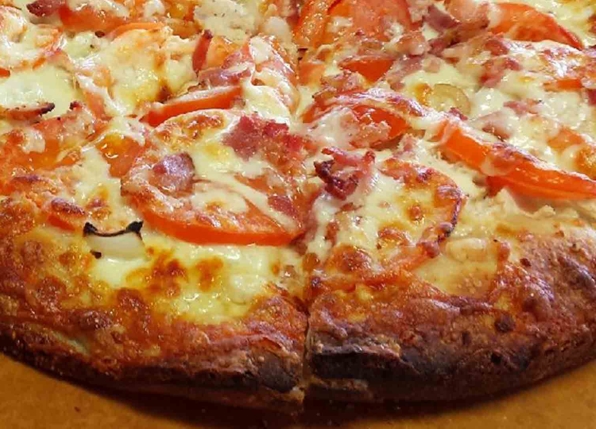We’ve all had the experience, at one time or another, of salivating spontaneously when we see or smell something good to eat. But new research suggests that there’s much more happening behind this response than we’re aware of. In fact, we may be setting up our whole system to digest…
 Mouthwatering is the only adjective to describe this golden brown
Mouthwatering is the only adjective to describe this golden brown
gooey, meaty Pizza. Bet you want a slice, or two, NOW!
They’re only mouse experiments at this point. But there’s a strong indication that, when we see and smell appetizing foods, we’re not only getting a hit of pleasure and generating a desire to eat them.
A new study from Germany says that, when we experience a mouth-watering moment, we also set off a cascade of processes that get our bodies ready to digest something.
“This finding changes our view of one of the most fundamental processes in the body,” says study Senior Author Jens Brüning, an Endocrinologist and Geneticist and director of the Max Planck Institute for Metabolism Research in Cologne, Germany. “The perception of food in the brain activates the liver in such a way that it begins preparing to receive the nutrients that it expects to come.”
What they did…
A previous study published in the journal Cell in 2015 by another team of researchers found that sensory perception of food by lab mice was enough to trigger the neural pathways normally fueled by eating. The new study built on that research, focusing on how the changes in these neural pathways sent signals that affected metabolic activities in the liver.
What they found…
It seems that simply seeing or smelling food causes the liver to start producing proteins that, in turn, cause specific reactions in other parts of the digestive system – changes usually triggered by actually eating food. And this triggers a strong desire to actually eat the food you’ve just seen or smelled.
What it means…
The researchers say the findings have potential implications for learning about the connections between obesity and diabetes.
“There’s a possibility that this food sensory-dependent priming of the liver may be compromised in obesity. It could be a mechanism that contributes to insulin resistance,” Brüning explains. “Obesity may leave the liver unprepared for performing its proper functions after eating, which in turn could disrupt the normal insulin response. This is something we plan to look at in future studies using obesity models in mice.”
My take…
The study findings suggest to me that the ‘mouthwatering’ response and all the secret stuff behind it may also contribute obesity, itself. I’m not sure if it’s weak will that leads to us giving in to the impulse to eat appetizing-looking or -smelling foods, or some kind of biological imperative we can’t consciously control, but I can report, from my own experience, that it’s almost impossible not to eat those Roasted Garlic Corn Chips sister Erin keeps bring home from the supermarket once I’ve had the slightest sniff of them. Alas, so entranced am I by their aroma and flavour that I sometimes fight her for the last crumbs in the bag. Am I weak, or just bowing to the inevitable?
~ Maggie J.

